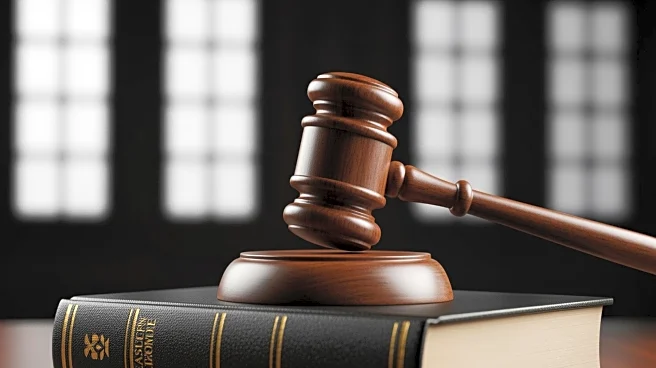What's Happening?
LaMonica McIver's attempt to claim immunity under the Speech and Debate Clause of the Constitution was rejected by a judge. McIver argued that her actions during a visit to Delaney Hall were protected
as part of her legislative duties. However, the judge ruled that the defense did not apply to the charges related to her intervention in the arrest of Baraka outside Delaney Hall. The Speech and Debate Clause typically protects members of Congress from arrest in connection with their legislative duties, but the judge found that McIver's actions fell outside this scope.
Why It's Important?
The ruling against McIver's immunity claim highlights the limitations of constitutional protections for lawmakers when their actions extend beyond legislative duties. This decision could set a precedent for how similar cases are handled, potentially affecting how lawmakers interact with law enforcement and judicial processes. It underscores the judiciary's role in interpreting constitutional clauses and balancing legislative privileges with accountability. The outcome may influence future legal strategies for lawmakers facing charges related to their conduct outside official duties.
What's Next?
Following the judge's decision, McIver may face further legal proceedings related to the charges against her. The case could prompt discussions among lawmakers and legal experts about the scope of legislative immunity and its application in various contexts. Stakeholders, including legal advocacy groups and political figures, might weigh in on the implications of the ruling, potentially leading to calls for legislative or judicial review of the Speech and Debate Clause's application.








